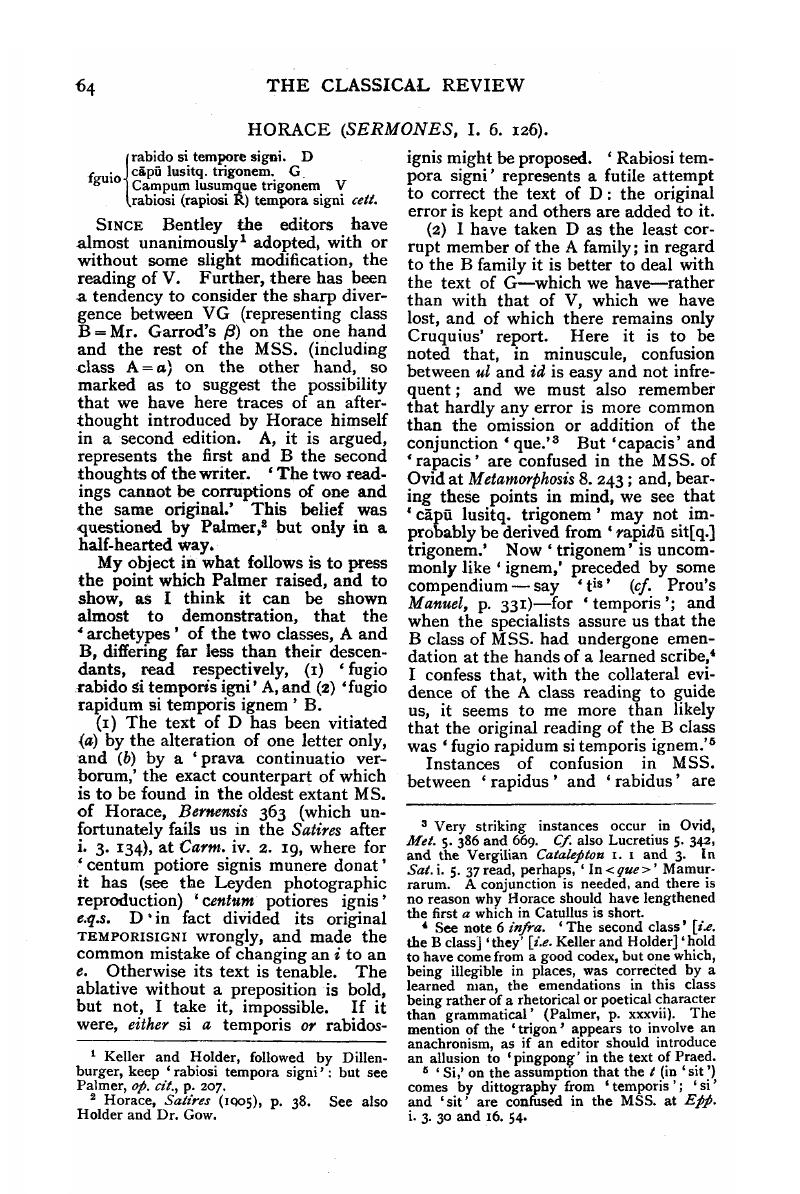No CrossRef data available.
Article contents
Horace (Sermones, I. 6. 126)
Published online by Cambridge University Press: 27 October 2009
Abstract

- Type
- Review Article
- Information
- Copyright
- Copyright © The Classical Association 1918
References
page 64 note 1 Keller and Holder, followed by Dillenburger, keep ‘ rabiosi tempora signi’: but see Palmer, op. cit., p. 207.
page 64 note 2 Horace, Satires (1005), p. 38. See also Holder and Dr. Gow.
page 64 note 3 Very striking instances occur in Ovid, Met. 5. 386 and 669. Cf. also Lucretius 5. 342, and the Vergilian Catalepton 1. 1 and 3. In Sat.i. 5. 37 read, perhaps,‘In<que>’ Mamurrarum. A conjunction is needed, and there is no reason why Horace should have lengthened the first a which in Catullus is short.
page 64 note 4 See note 6 infra. ‘The second class’ [i.e. the B class] ‘they’ [i.e. Keller and Holder] ‘hold to have come from a good codex, but one which, being illegible in places, was corrected by a learned man, the emendations in this class being rather of a rhetorical or poetical character than grammatical’ (Palmer, p. xxxvii). The mention of the ‘trigon’ appears to involve an anachronism, as if an editor should introduce an allusion to ‘ pingpong’ in the text of Praed.
page 64 note 5 ‘Si,’ on the assumption that the t (in ‘sit’) comes by dittography from ‘temporis’; ‘si’ and ‘sit’ are confused in the MSS. at Epp. i. 3. 30 and 16. 54.
page 65 note 1 At Juvenal vi. 93 P has ‘ ignium changed to Ionium ’ (Duff). Here V's exemplar had ignem corrected to ignem: hence (see Lindsay on Martial xi. 106. i) ‘igonem,’ which, preceded by the compendium for ‘temporis,’ might only too easily give rise to the anachronistic ‘trigonem.’ At Ars Poetica 393 the B class (i.e. VB) have ‘rabidos’ as against the ‘ rapidos’ of the rest.




